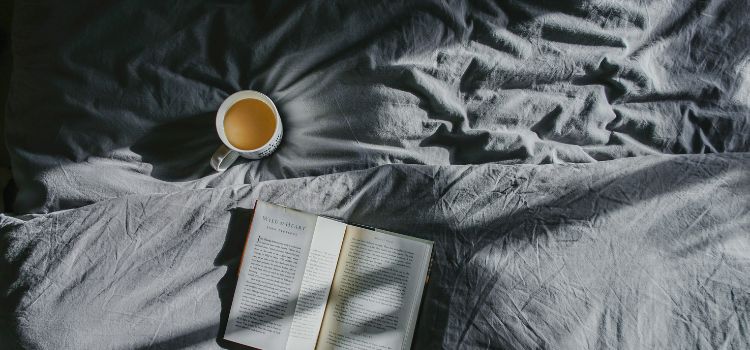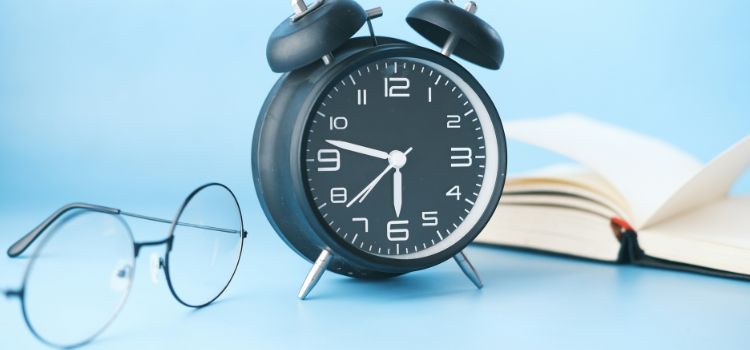As an Amazon Associate I earn from qualifying purchases.
The best coffee to avoid sleep is typically a strong, dark roast with a high caffeine content. Drinking a cup of this type of coffee can help increase alertness and prevent drowsiness.

However, it is important to remember that relying solely on coffee to combat sleepiness is not a sustainable long-term solution, and it is essential to prioritize a healthy sleep schedule and overall well-being.
Benefits Of Coffee For Wakefulness
Coffee is known for its benefits in promoting wakefulness. When it comes to choosing the best coffee to avoid sleep, opt for a strong brew or espresso for maximum alertness. Enjoying a cup of coffee can help you stay awake and focused throughout the day.
Caffeine Content
Coffee is known for its high caffeine content, which is a natural stimulant that can enhance wakefulness.
Effect On Brain Function
The caffeine in coffee works by blocking the neurotransmitter adenosine in the brain, leading to improved focus and alertness.
Types Of Coffee For Sleep Avoidance
Coffee is a popular drink known for its ability to keep us awake and focused, making it an essential companion for many. However, not all coffee is created equal when it comes to avoiding sleep. Different types of coffee have varying levels of caffeine and other components that can impact our ability to fall asleep. Let’s explore the types of coffee that are best suited for those looking to steer clear of sleep.
Espresso
Espresso is a concentrated form of coffee made by forcing hot water through finely-ground coffee beans. It is known for its intense flavor and high caffeine content, typically consumed in small quantities. Due to its strong caffeine concentration, espresso is not the best choice for those seeking to avoid sleep.
Americano
Americano is made by diluting espresso with hot water, creating a milder coffee with a lower caffeine content. While americano still contains caffeine, its diluted nature makes it a more suitable option for individuals aiming to steer clear of sleep disruptions.
Cold Brew
Cold brew coffee is created by steeping coarsely ground coffee beans in cold water for an extended period, resulting in a smoother, less acidic flavor profile. Cold brew tends to have a higher caffeine concentration due to the prolonged steeping process. Therefore, it may not be the most ideal choice for those looking to avoid sleep, especially if consumed in large quantities.
Best Time To Consume Coffee
Wondering when to grab that cup of coffee? The timing of your coffee consumption can significantly impact your sleep cycle. Let’s break down the ideal times to enjoy your favorite caffeinated beverage.
Morning
- Start your day right: Morning is the best time to consume coffee to kickstart your day with energy.
- Avoid too early: Wait at least an hour after waking up to allow cortisol levels to rise naturally.
Early Afternoon
- Midday pick-me-up: Enjoy a cup of coffee in the early afternoon for a productivity boost.
- Steer clear post-3pm: Consuming coffee late in the day can disrupt your sleep quality.
Factors To Consider For Maximum Wakefulness
When it comes to choosing the best coffee to keep you awake and alert, there are several factors that you should consider. By paying attention to these factors, you can ensure that you are getting the maximum wakefulness from your cup of joe.
Quality Of Beans
The quality of the beans used to make your coffee plays a significant role in its wakefulness-inducing properties. If you want a coffee that packs a punch, opt for high-quality, freshly roasted beans. Look for beans that have been sourced from reputable coffee-growing regions and have been recently roasted to ensure maximum freshness.
Brewing Method
How you brew your coffee also affects its wakefulness potential. Different brewing methods can extract different levels of caffeine from the beans. Some brewing methods, like espresso, tend to produce a more concentrated caffeinated beverage, while others, like pour-over, result in a smoother, milder flavor. Consider experimenting with different brewing techniques to find the one that suits your taste preferences and wakefulness needs.
In addition to the brewing method, it’s important to pay attention to the ratio of coffee to water. The strength of your brew can have a significant impact on its wakefulness properties. A stronger brew with a higher coffee-to-water ratio will generally contain more caffeine and provide a greater jolt of energy.
Brewing Time And Temperature
The brewing time and temperature also play a role in the wakefulness quality of your coffee. Generally, a longer brewing time and hotter water will extract more caffeine from the beans, resulting in a stronger and more potent cup. However, be cautious not to over-extract the coffee as it can lead to a bitter and unpleasant taste.
For maximum wakefulness, aim to brew your coffee at a temperature between 195 and 205 degrees Fahrenheit (90-96 degrees Celsius) and adjust the brewing time based on your preference for strength and flavor.
Personal Sensitivity To Caffeine
It’s important to recognize that everyone has different levels of sensitivity to caffeine. While some individuals may find that a single cup of coffee keeps them energized for hours, others may need multiple cups to achieve the same effect. Pay attention to how your body reacts to caffeine and adjust your coffee consumption accordingly.
It’s also worth noting that excessive consumption of caffeine can lead to negative side effects such as jitters, insomnia, and digestive issues. If you find that you’re consuming a large amount of coffee to stay awake, consider incorporating other wakefulness-promoting practices into your routine, such as regular exercise and sufficient sleep.
Impact On Sleep Patterns
Choosing the right type of coffee to stay awake without disrupting your sleep patterns is crucial. Different types of coffee and their caffeine content can impact your sleep quality and duration. Let’s explore the potential risks of consuming coffee late in the day and how it affects your sleep patterns.
Insomnia Risk
Excessive consumption of coffee can increase the risk of insomnia, a sleep disorder characterized by difficulty falling asleep or staying asleep. Coffee stimulates the central nervous system, making it harder for your body to relax and unwind, which can lead to disrupted sleep patterns. It’s best to limit your coffee intake, especially in the evening, to reduce the risk of insomnia.
Duration Of Alertness
Coffee can provide a temporary boost of energy and keep you feeling alert, thanks to its caffeine content. However, it’s essential to consider the duration of alertness coffee provides. The effects of caffeine can vary from person to person, and some individuals may experience prolonged wakefulness even hours after consuming coffee. To avoid disruptions in your sleep patterns, it’s advisable to consume coffee during the early hours of the day and gradually decrease your intake as the day progresses.
Side Effects Of Excessive Coffee Consumption
Excessive coffee consumption can lead to several side effects that may impact your health and well-being. While coffee can provide a much-needed energy boost, overindulging in this beverage can result in adverse effects on your body and mind. Being aware of the potential repercussions of excessive coffee intake is essential for maintaining a healthy lifestyle.
Jitters
The consumption of excessive amounts of coffee can lead to jitteriness, which is characterized by an uncomfortable feeling of restlessness and agitation. This jittery sensation is often accompanied by trembling or shakiness, and can leave individuals feeling unsettled and uneasy.
Anxiety
Another side effect of excessive coffee consumption is heightened anxiety. Consuming large quantities of coffee can stimulate the release of stress hormones, leading to increased feelings of nervousness, unease, and tension. This can be particularly problematic for individuals who are already prone to anxiety or panic attacks.
Additionally, excessive coffee intake can also result in disrupted sleep patterns, digestive issues, and increased heart rate. It is important to be mindful of your coffee intake to avoid these potential adverse effects.
Health Benefits Of Moderate Coffee Intake
Coffee is undoubtedly a popular beverage, known for its ability to provide a much-needed energy boost. However, many people are often concerned about whether consuming coffee can negatively impact their sleep. The good news is that when enjoyed in moderation, coffee can actually offer several health benefits.
Antioxidants
Coffee is a rich source of antioxidants, such as chlorogenic acid and polyphenols, which help the body combat oxidative stress and reduce the risk of chronic diseases.
Improved Mood
Regular consumption of coffee has been shown to enhance mood and mental alertness, thanks to the stimulation of neurotransmitters like dopamine and serotonin.
Finding Your Perfect Wake-up Wonder

Choosing the right coffee to avoid disrupting your sleep cycle is essential for maintaining a healthy lifestyle. By understanding the factors that influence your caffeine sensitivity and experimenting with different options, you can find your ideal wake-up solution. Remember, consulting with a health professional is key to ensuring your coffee choice aligns with your individual needs.
Experimentation
Experimenting with various types of coffee, such as different roasts, brewing methods, and caffeine levels, can help you determine what works best for your body. By tweaking these variables, you can find the perfect balance that keeps you energized without compromising your sleep.
Consultation With Health Professional
Before making any significant changes to your coffee consumption habits, it’s crucial to seek guidance from a health professional. They can provide personalized recommendations based on your health status and help you make informed decisions about your caffeine intake.
Frequently Asked Questions On Which Coffee Is Best To Avoid Sleep
How Does Coffee Affect Sleep?
Coffee contains caffeine that stimulates the central nervous system, making it difficult to fall asleep and reducing overall sleep time.
Can I Drink Decaf Coffee Before Bed?
Yes, you can. Decaf coffee contains much less caffeine than regular coffee, making it a better choice before bedtime.
What Are Alternative Drinks To Avoid Sleep?
Herbal teas, warm milk, and decaffeinated beverages offer soothing alternatives to coffee when you want to avoid sleep disruption.
Is It Okay To Drink Coffee In The Afternoon?
It’s best to avoid coffee in the afternoon as the caffeine can stay in your system for hours, potentially interfering with sleep.
Conclusion
Ultimately, finding the best coffee to avoid sleep depends on your personal preferences and tolerance to caffeine. Experimenting with different types of coffee, such as Arabica or Robusta, and brewing methods like espresso or pour-over, can help you discover the perfect option for your needs.
Remember to consume coffee in moderation and be aware that its effects may vary from person to person. So, whether it’s a strong espresso or a rich Arabica blend, choose the coffee that works best for you and enjoy it responsibly.
As an Amazon Associate, I earn from qualifying purchases.
Leave a Reply